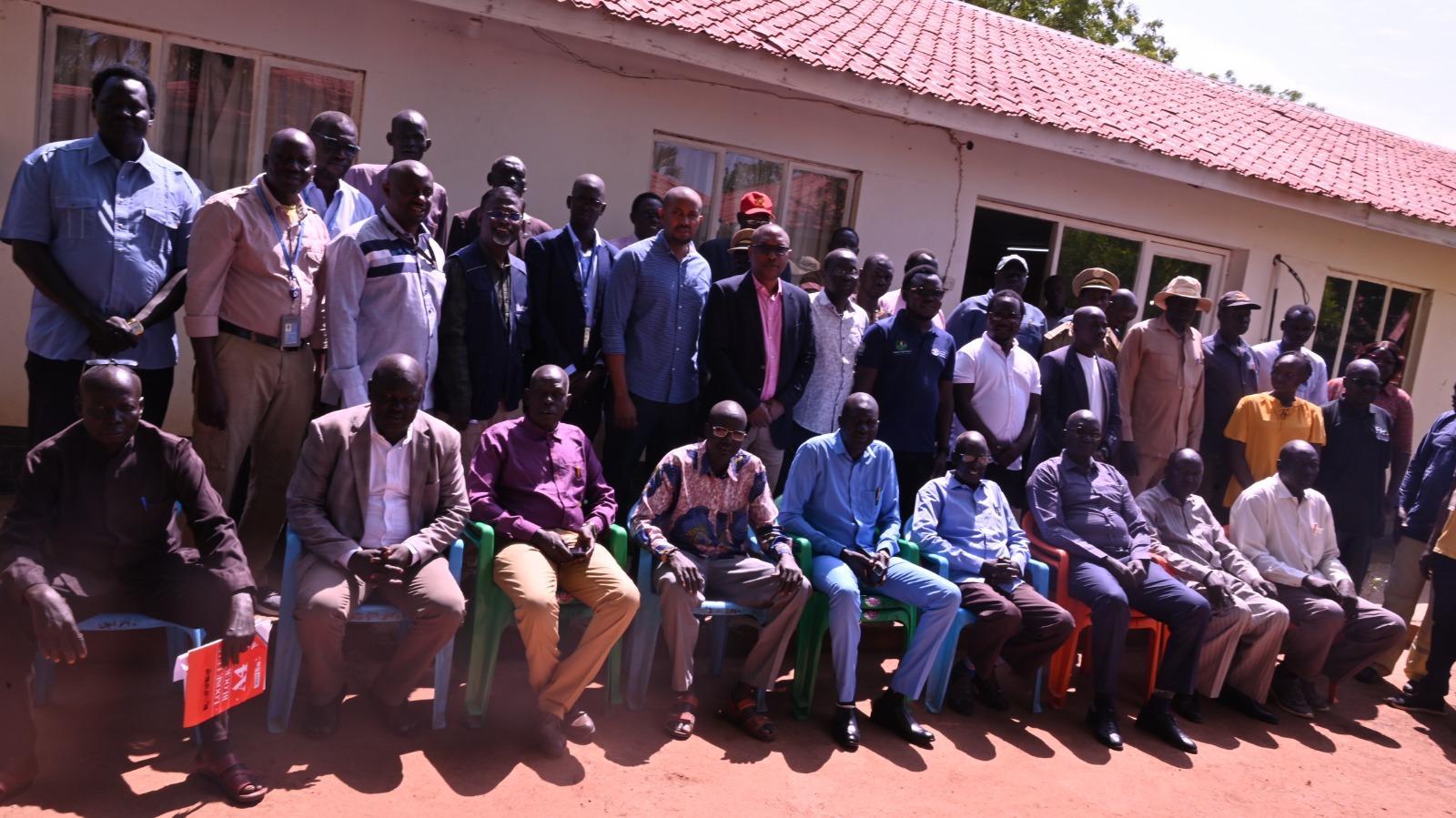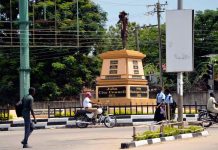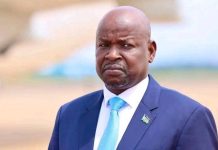Africa-Press – South-Sudan. The Lakes State government, in collaboration with partners, has launched a €36 million Green and Resilience Agriculture and Climate Economy (GRACE) project, targeting 22,770 smallholder farmers, 141,823 beneficiaries, 360 producer groups, and 23 cooperatives across four states.
Lakes State (Cueibet and Wulu counties), Central Equatoria State (Terekeka and Juba), Western Equatoria State (Nzara), and Northern Bahr el Ghazal State (Aweil Centre, Aweil South, and Aweil North counties) are expected to benefit from the initiative.
The project adopts a community-based approach, engaging producer groups and cooperatives in coordination with local authorities at state, county, payam, and boma levels, as well as private sector actors, under the leadership of the GIZ/SNV consortium.
With a budget of EUR 36,439,205, the GRACE project aims to promote a green, sustainable, and climate-resilient economy while enhancing food and nutrition security, resilience to shocks, and job creation in South Sudan.
Poth Majak Daljang, the Minister of Agriculture, Forestry, and Environment, emphasised the importance of strategic investment in agriculture.
“This four-year project requires demonstration plots in every payam to train farmers,” he said. “All nine payams in Cueibet and four in Wulu are included. We need designated demonstration farms to showcase the project’s impact.”
He stressed that efficient cultivation techniques matter more than the size of the land. “Cultivating just two feddans with skill can outperform seven or eight feddans without expertise.”
Daljang highlighted Lakes State’s readiness to embrace additional projects, noting improved stability. “Even Rumbek North can now accommodate resilience projects. Not all counties face inaccessibility or conflict. Our communities, previously underserved, are now accessible and eager to benefit. Our committed technical staff at the state, county, and boma levels will support project implementation,” he said.
He identified water access as a key challenge, stating, “Agriculture, especially vegetable production, cannot succeed without reliable water. While rain-fed crops are viable, vegetable production requires water yard systems, not just hand pumps, to boost output.”
David Lugeron, head of the World Food Programme (WFP), praised Lakes State’s rainfall potential to enhance food security.
“Lakes State has immense potential, not just for itself but for the entire country,” he said. “The GRACE project is timely, but it demands collective effort from organisations like WFP, FAO, and frontline county teams to realise its goals.” He emphasised the need for clear roles and joint efforts to transform Lakes State’s agricultural landscape.
Hannington Sebaduka, FAO Head of Field Office in Rumbek, expressed optimism about the project, describing it as a beacon of hope for Lakes State’s agriculture sector.
“This four-year project, designed with the European Union and the South Sudan government, is unique in its consistent partnership with FAO, WFP, and the International Trade Centre,” he said. “It aligns with FAO’s priorities of agribusiness, market access, and resilient agri-food systems.”
Sebaduka noted that the project’s four-year duration marks a shift from shorter six-month or one-year initiatives, enabling sustainable progress.
“We’re building farmer groups, cooperatives, and economies of scale to improve market access, value addition, and financing. From payam administrators to ministers, all are partners in this transformative intervention.”
Wani Julius, resilience program coordinator for Norwegian People’s Aid (NPA), underscored the project’s significance.
“Unlike short-term three- or six-month projects, this four-year initiative allows us to achieve tangible results,” he said. “NPA is already implementing a similar World Bank-funded resilience agriculture project in Bor, succeeding because farmers and officials own it from the village to state levels.”
He acknowledged ongoing collaboration with WFP, FAO, and local stakeholders, expressing confidence in delivering the project’s objectives.
Samuel Aberic Makur, Deputy Chairperson of the Relief and Rehabilitation Commission (RRC) in Lakes State, described the GRACE project as a significant improvement over previous seasonal FAO initiatives.
“As RRC, we will oversee operations and work closely with the Ministry of Agriculture to ensure successful implementation,” he said. “The targeted beneficiaries are well-suited for this project, and we will address any operational challenges to meet the needs of our people.”
The GRACE project represents a collaborative, long-term commitment to transforming South Sudan’s agricultural landscape, fostering resilience, and improving livelihoods through sustainable practices and community engagement.
For More News And Analysis About South-Sudan Follow Africa-Press






